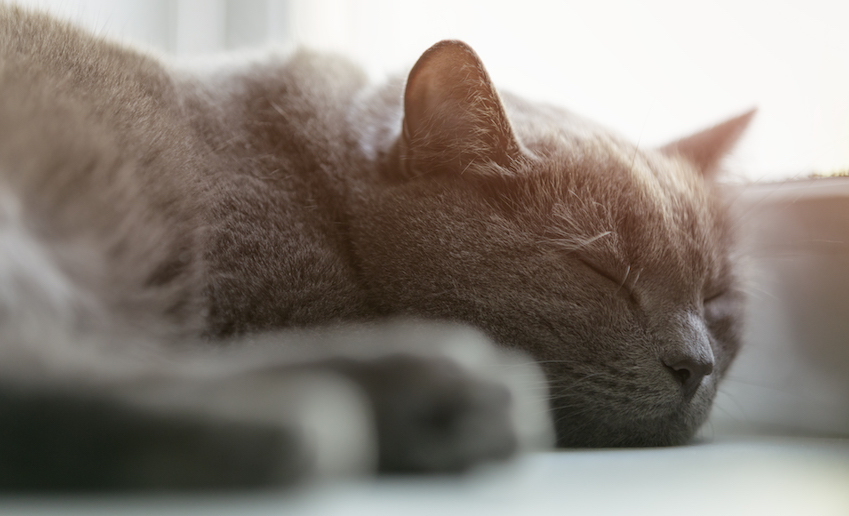Cats are often considered very mysterious creatures, so it’s unsurprising that feline folklore and superstitions over the years have influenced the way people care for the health of their fur babies.
Unfortunately, there are several common cat health myths out there that can seriously mislead pet owners and prevent cats from getting the care they need to live long, healthy, and happy lives. So let’s set the record straight—here are four dangerous cat health myths that pet parents often believe:
Myth #1: Indoor cats don’t get sick
Far too often, pet owners assume that if a cat doesn’t go outside, it won’t encounter any illnesses or injury, but that’s simply not true. Indoor cats may not get as much exposure to things like fleas, ticks or mosquitos—all of which carry dangerous diseases—but have you ever heard of an outdoors-only mosquito? Not to mention, there are heaps of health issues like hypothyroidism, diabetes, and obesity that have nothing to do with whether your cat lives indoors or outdoors! Is your cat protected?
Learning to recognize the risks and how to identify signs of illness will enable you to take your cat to the veterinarian in time to treat potential health emergencies
Myth #2: Healthy cats don’t need routine veterinary care
Whether your cat lives indoors or outdoors, preventive care is the best form of defense against cat illness and injury—which is why routine veterinary care is absolutely necessary. While it’s true that cats seem to have a more independent attitude, they are by no means capable of regulating their own health.
Regular vet visits help you stay informed of risks, while also establishing a baseline for nutritional, dental and renal (heart) health among other things. Rather than simply waiting for an emergency, preventive care keeps your cat’s vaccinations and seasonal treatments on track to ensure the best quality of life possible for you and your beloved pet.
Myth #3: Cats don’t show signs of illness
Even the most devoted cat owners can fall prey to this myth, but it’s not an accurate belief to have when raising your cat. It’s not so much that cats hide their injuries and sickness, they just have different ways of expressing their pain than what we might expect from other pets, like dogs.
You know your cat better than anyone, so capitalize on the closeness of that relationship to look out for any changes in behavior that might be linked to health problems. The best way to prepare yourself as a responsible pet owner is to seek advice and recommendations that only a trained veterinary team can provide. To give your pet its ideal life, try to be proactive about its health, not just reactive in the face of an emergency.
Myth #4: Skipping routine checkups will save you money
If you’re worried that going to the veterinarian more often will be more expensive, don’t be—in the long run, preventive care can actually help you save heaps of money.
Many insect-borne diseases and digestive issues are entirely preventable—why not make use of the medical innovations available to you? After all, emergency care and treatments for chronic conditions are plenty more expensive than the odd consultation every year or so.
So there you have it—four cat health myths debunked. Here’s to staying informed and active in maintaining the health of your cat right meow and for many years to come.






